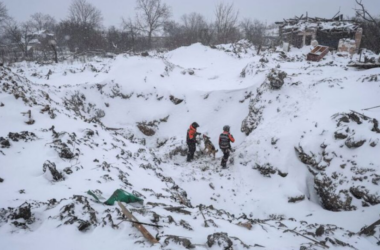In a move that has stirred controversy and drawn international attention, the Israeli government has given its approval for the construction of over 1,700 new homes in a settlement located in East Jerusalem, as reported by a non-governmental organization (NGO). The decision, a part of Israel’s broader settlement policies, has implications for regional dynamics, peace efforts, and has prompted reactions from various quarters, adding another layer to the complex geopolitical landscape in the Middle East.
The announcement of approval for the construction of more than 1,700 residences in a settlement situated in East Jerusalem marks a significant development in Israel’s approach to territorial expansion. East Jerusalem, captured by Israel during the 1967 Six-Day War, has been a focal point of contention in the Israeli-Palestinian conflict, with both parties laying claim to the city as their capital. The construction plans further underscore Israel’s commitment to expanding settlements in disputed territories, a policy that has been a consistent source of tension in the region.
The NGO report confirming the approval of over 1,700 new homes in the East Jerusalem settlement provides an independent verification of the Israeli government’s decision. NGOs play a crucial role in monitoring and reporting on developments in the region, providing valuable insights into actions that impact local populations and have broader geopolitical implications.
The Israeli government’s approval of the settlement construction has elicited diverse international reactions. Critics argue that such actions hinder the prospects of a two-state solution, as the expansion of settlements in disputed territories complicates negotiations and undermines the establishment of a viable, independent Palestinian state. International leaders and organizations have expressed concerns about the potential ramifications of this decision on regional stability and the pursuit of peace in the Middle East.
The construction of new homes in East Jerusalem has direct implications for Israeli-Palestinian relations. The disputed status of Jerusalem, particularly East Jerusalem, remains a core issue in negotiations between the two parties. The settlement expansion is viewed by Palestinians as a hindrance to the establishment of their future state, contributing to a cycle of distrust and impeding progress towards a resolution of the longstanding conflict.
The approval of over 1,700 new homes in the East Jerusalem settlement must be understood within the broader geopolitical context of the Middle East. The Israeli-Palestinian conflict is entwined with regional dynamics and influences relationships with neighboring countries. As such, decisions regarding settlement expansion reverberate beyond the borders of Israel and Palestine, contributing to the complex and multifaceted challenges facing the entire region.
Amidst the tensions resulting from settlement expansion, advocates for peace continue to emphasize the importance of diplomatic solutions. International diplomacy remains a key avenue for addressing the root causes of the Israeli-Palestinian conflict, promoting dialogue, and fostering mutual understanding. The construction of new homes in East Jerusalem underscores the critical need for sustained diplomatic efforts to navigate the complexities of the region and chart a path towards lasting stability.
In conclusion, Israel’s decision to greenlight the construction of more than 1,700 residences in an East Jerusalem settlement adds a layer of complexity to the already intricate Israeli-Palestinian conflict. As global attention focuses on the region, the implications of settlement expansion reverberate across international platforms, prompting calls for diplomatic solutions and underscoring the ongoing challenges in achieving a lasting peace in the Middle East.








